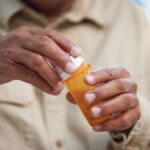Toxic relationships are harmful to anyone recovering from a drug or alcohol addiction. Being in a toxic relationship can slow recovery progress, cause emotional distress, or lead to relapse. It is important to be aware of the signs of toxic relationships and to know how to deal with them effectively.
What is a Toxic Relationship?
Any kind of relationship where a harmful dynamic exists between two people is a toxic relationship. A toxic relationship is one that makes you feel misunderstood, unsupported, attacked, demeaned, or threatened on any level: emotional, psychological, or physical. Toxic relationships can come in many forms, such as romantic partners, friendships, family members, coworkers, or even online acquaintances. Although anyone can find themselves in a toxic relationship, often people with low self-esteem who use drugs or alcohol to cope with their feelings find themselves trapped in a toxic relationship.
Recognizing a Toxic Relationship
Toxic relationships are characterized by negativity, manipulation, and a lack of respect, leaving the person feeling drained and emotionally exhausted. In toxic relationships, there is often a power imbalance, with one person exerting control and dominance over the other using
emotional or physical abuse, gaslighting, manipulation, or oppression.
The toxic person may belittle and criticize their partner, eroding their self-esteem and making them doubt their self-worth. They may also use guilt, fear, or intimidation to maintain control and prevent the other person from leaving the relationship. In toxic relationships, arguments and conflicts about the same issues keep resurfacing over and over again without any resolution.
Another characteristic of toxic relationships is the absence of healthy boundaries. In healthy relationships, boundaries are respected and honored. They ensure that both individuals’ needs and well-being are prioritized. However, in toxic relationships, boundaries are either non-existent or consistently violated. The toxic person may invade the other person’s privacy, disregard their feelings and needs, or make them feel guilty for setting boundaries.
Here are four questions to ask yourself to help recognize toxic people in your life.
- How does the person make you feel?
- Do they bring you down or make you feel bad?
- Do they make you question your recovery?
- Do they encourage addictive behaviors or try to enable your substance use?
It is crucial for a person in recovery to identify toxic individuals and acknowledge the negative impact they have on their life and recovery journey. By recognizing toxic relationships, you can begin to take the necessary steps to remove them from your life and create a healthier, positive environment for yourself.
How Do Toxic Relationships Affect Addiction Recovery?
Toxic relationships have a negative impact on addiction recovery. When a person is recovering from addiction, their emotions are fragile, and their strength to safeguard their sobriety may still be forming. A toxic relationship can rapidly derail their recovery progress and trigger a relapse. Below are three ways toxic relationships affect addiction recovery.
- Toxic relationships trigger emotional distress. The constant negativity, manipulation, and lack of respect inherent in toxic relationships can increase feelings of shame, guilt, and self-doubt, causing the individual to return to using drugs or alcohol to escape.
- Toxic relationships can sabotage a person’s support system. During addiction recovery, it is crucial to surround yourself with individuals who genuinely care about your well-being and who will support your sobriety journey. However, toxic relationships often drain a person’s energy and emotional resources, leaving them with little to put into healthy relationships and recovery-focused activities. This can isolate them from positive influences and make them more vulnerable to relapse.
- Toxic relationships can slow personal growth and self-improvement. In order to successfully recover from addiction, you need to prioritize your well-being and focus on building a healthier and happier life. Toxic relationships keep you trapped in an unproductive loop that hinders personal growth and prevents you from making progress in your recovery journey.
Toxic relationships are incompatible with addiction recovery. By setting clear boundaries, seeking support from healthy relationships, and prioritizing your own well-being, you can break free from the harmful effects of toxic relationships and continue on your path to long-term sobriety.
We Can Help
Are you or someone you care about struggling with drug or alcohol addiction? If you answered yes, we can help. Canyon Vista Recovery Center has skilled professionals to help you regain control of your life. We can provide you with the skills you need to live a life of sobriety. Contact our Mesa, AZ, facility today.











